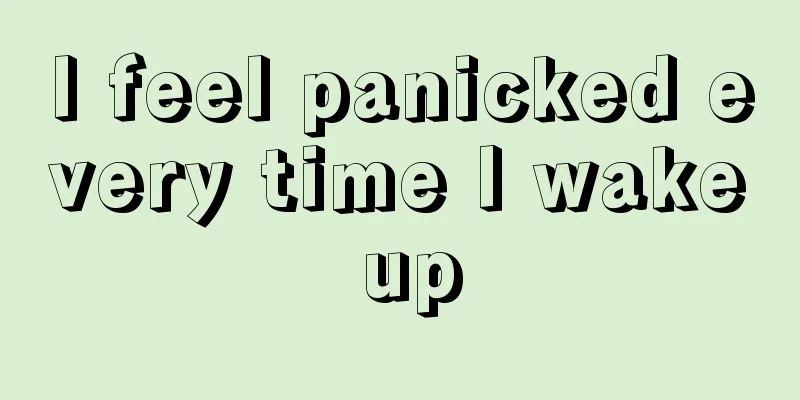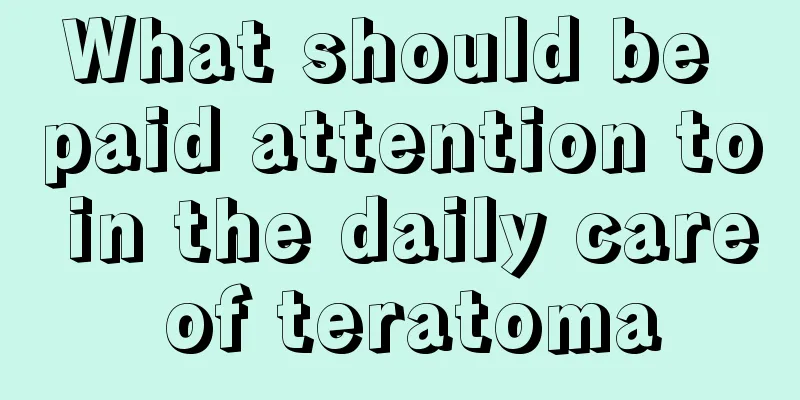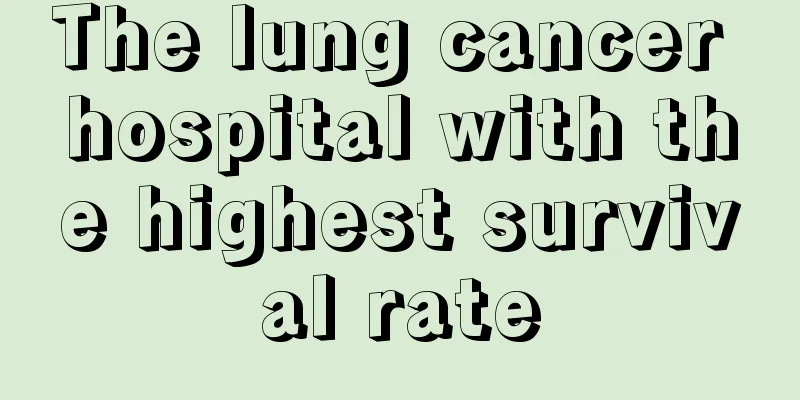I feel panicked every time I wake up

|
Many people have the habit of taking a nap at noon every day. They will feel more energetic after waking up from the nap, which is conducive to improving work efficiency in the afternoon. But sometimes I would suddenly wake up in the middle of the night and my heart would beat very fast. This situation can be serious or minor, and you need to consider whether it is because you often stay up late and have an irregular work and rest schedule. It could also be heart disease. What is the reason for feeling anxious when waking up? 1. Common causes 1. Increased heart rate 1. Physiologically, normal people may experience palpitations after strenuous physical activity or mental excitement, drinking alcohol, or taking drugs such as ephedrine, caffeine, and adrenaline, which may also increase the heart rate. 2. Pathological causes include ventricular hypertrophy (such as rheumatic, hypertensive, coronary artery sclerosis, etc.), anemia, high fever, hyperthyroidism, and other diseases that cause increased cardiac output, all of which can cause palpitations. (ii) Arrhythmias such as tachycardia or bradycardia (such as high-degree atrioventricular block, etc.) and irregular heart rhythm (such as premature beats, atrial fibrillation, etc.) can cause patients to experience palpitations. (III) Cardiac neurosis is a clinical syndrome caused by autonomic nervous system dysfunction, which leads to cardiovascular dysfunction. In addition to palpitations, patients also have stabbing or dull pain in the left chest, difficulty breathing, and are often accompanied by other neurotic symptoms. 2. Key points of medical consultation When asking questions, pay attention to the time when palpitations occur, their relationship with labor, and accompanying symptoms. (1) Palpitations accompanied by chest pain can be seen in coronary artery ischemia, myocarditis, cardiac neurosis, etc. (ii) Palpitations accompanied by fever can be seen in rheumatic fever, hyperthyroidism, pericarditis, myocarditis, infective endocarditis and other febrile diseases. (III) Palpitations accompanied by syncope and convulsions may be seen in cardiogenic cerebral hypoxia syndrome caused by high-degree atrioventricular block, ventricular fibrillation or paroxysmal ventricular tachycardia and ventricular fibrillation. (IV) Palpitations accompanied by dyspnea can be seen in acute myocardial infarction, heart failure, severe anemia, etc. |
<<: What's wrong with feeling flustered and weak
>>: How to relieve the panic after taking diet pills
Recommend
Residual chlorine in tap water increases the probability of bladder cancer. The correct way to prevent bladder cancer
If you want to know why residual chlorine in tap ...
How to stop vomiting after chemotherapy
For most patients who undergo chemotherapy, chemo...
How long can one live with advanced cervical cancer? How long can one live with advanced cervical cancer?
Cervical cancer is the third most common malignan...
What's wrong with staying up late and not being able to sleep
Insomnia is a very painful condition. Many elderl...
What does slight aversion to wind and cold mean
Simply put, a mild cold is actually the symptom o...
What are the types of diabetes
The formation of diabetes is not accidental. It i...
What should I do if my gums are swollen, painful and have an odor?
The condition of swollen and painful gums with un...
What antibiotics are used for pelvic inflammatory disease
Pelvic inflammatory disease is an inflammation of...
Is it better to extract wisdom teeth or not?
When wisdom teeth grow, it is easy to have swolle...
Early symptoms of neck lymphoma
Early symptoms of neck lymphoma may include neck ...
What are the common clinical manifestations of patients with colon cancer
Colon cancer has no symptoms in the early stages,...
What is the cause of bleeding between teeth
The phenomenon of bleeding between teeth needs to...
Ultrasound diagnosis of metastatic liver tumors
The incidence of liver metastatic malignant tumor...
What are the differential diagnoses of colon cancer?
As long as patients actively cooperate with treat...
What causes bladder cancer?
Oncologists say that bladder cancer is a type of ...









